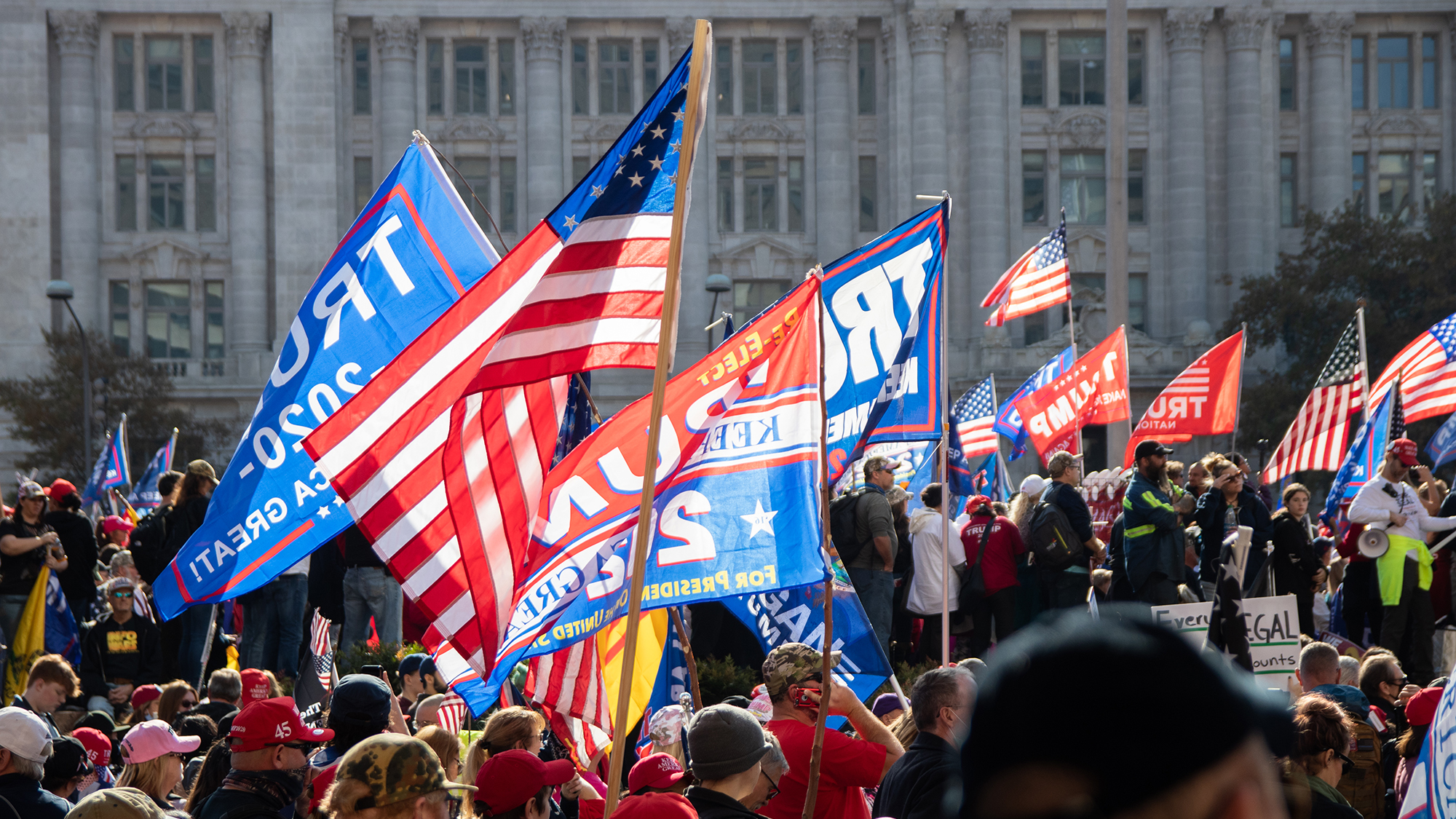It’s Monday evening, and the leader of the free world is tweeting again.
The 2020 presidential election was called for former Vice President Joe Biden 10 days ago, but current President Donald Trump has been undermining the results for even longer than that. In the early hours of Nov. 4, he declared himself winner while several key states were still counting ballots. The next day, he doubled down on this claim in a news conference and baselessly diagnosed widespread fraud in the election.
In the days since, Trump has continued to accuse the Democratic Party and news media of stealing the election, firing up his base and prompting thousands of his followers to gather in Washington, D.C., on Saturday in a demonstration that devolved into violence after the sun set over the city. The president’s actions have prompted some to wonder: Is this a coup?
But for the most part, University of Maryland professors agree the president’s behavior, though unprecedented, does not meet the definition of a traditional coup. Nonetheless, they say Trump’s actions will leave lasting damage on the democratic system, as its credibility among the American public declines and the peaceful transfer of power on which it has long depended is shaken.
“We have never had a president who was defeated in a presidential election fail to accept the result and make wild, baseless claims about fraud, which work to undermine the legitimacy of our political system,” said government and politics professor David Karol.
[The myth of the “Latino vote,” debunked by three UMD professors]
However, though Karol struggled to find a label for the president’s actions, he said nothing Trump has done has suggested that a coup is afoot. Trump likely wouldn’t be capable of pulling one off, Karol said, mainly because he is just one man in the country’s political system. Trump would need the support of the governing elite and the military to trigger a coup.
History professor Howard Smead elaborated on the definition of a coup, describing it as a “forceful takeover of the government.” For that to happen, he said, Trump would have to seize control of major governmental bodies, such as Congress or the military, or neutralize the U.S. Supreme Court.
“That’s a tall order,” Smead said.
Ernesto Calvo, another government and politics professor at this university, agreed that Trump’s actions wouldn’t fit the definition of a traditional coup. However, he laid out a hypothetical scenario in which the president could accomplish a coup without military force.
He identified this sequence of events as a “self-coup,” or when a leader overrides existing institutions to extend and maintain his control. This happened in 1992 in Peru when President Alberto Fujimori dissolved the country’s Congress, deferred civil liberties and commanded a newly established government. However, even Fujimori had military backing.
For Trump to stage a self-coup, Calvo said he would have to overtake state control using the Electoral College.
[It’s Election Day. Here’s what UMD professors say we can expect.]
When citizens cast a vote for a certain candidate, they’re actually voting for individuals called electors — people who are, in most cases, committed to supporting the candidate who won in their state. The number of electors a state has is equal to the number of electoral votes it has, and, in general, they are selected by state party leaders.
On Dec. 14, the chosen electors will cast their ballots, generally for whomever won the popular vote in their state. The House of Representatives and Senate count the electoral votes, and whichever candidate collects 270 electoral votes is announced the winner.
Trump would have to convince party leaders in states that saw close races, such as Georgia or Pennsylvania, to choose electors who would vote against the majority vote of their state and instead cast an electoral vote for him to accomplish a self-coup, Calvo said.
Calvo stressed that this scenario is very unlikely. Karol agreed, saying that there’s no indication that Republican state leaders would be willing to undermine their state’s popular vote for a Trump victory. Democrats in Congress would also never allow this sequence of events to move forward and most of the populace would be in uproar, he said.
But in the off-chance that Trump were to stage a self-coup and be successful, Calvo said it would undermine any democratic norms, principles and systems the United States has in place.
“By most international standards, the U.S. would no longer be considered a full democracy,” Calvo said.



